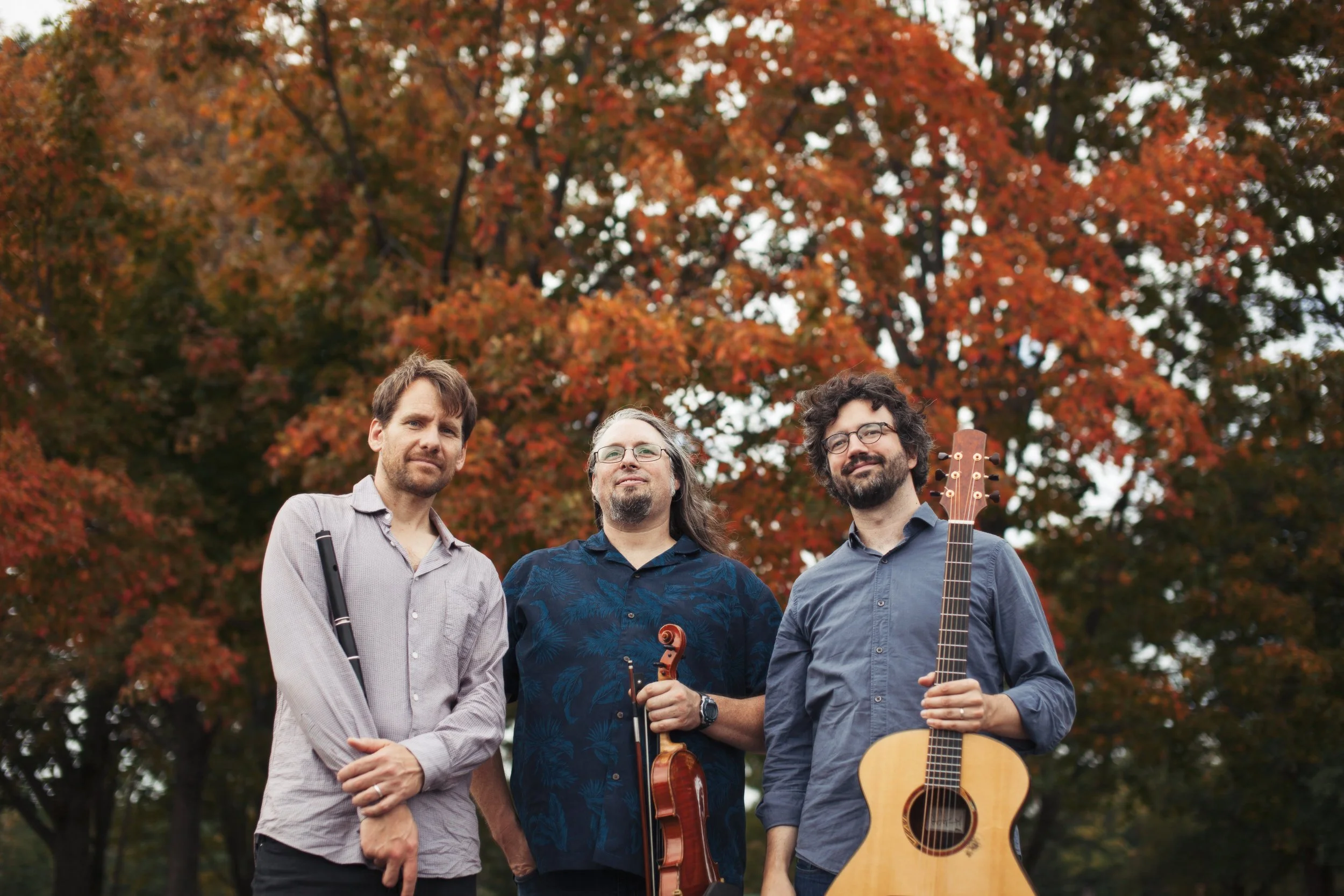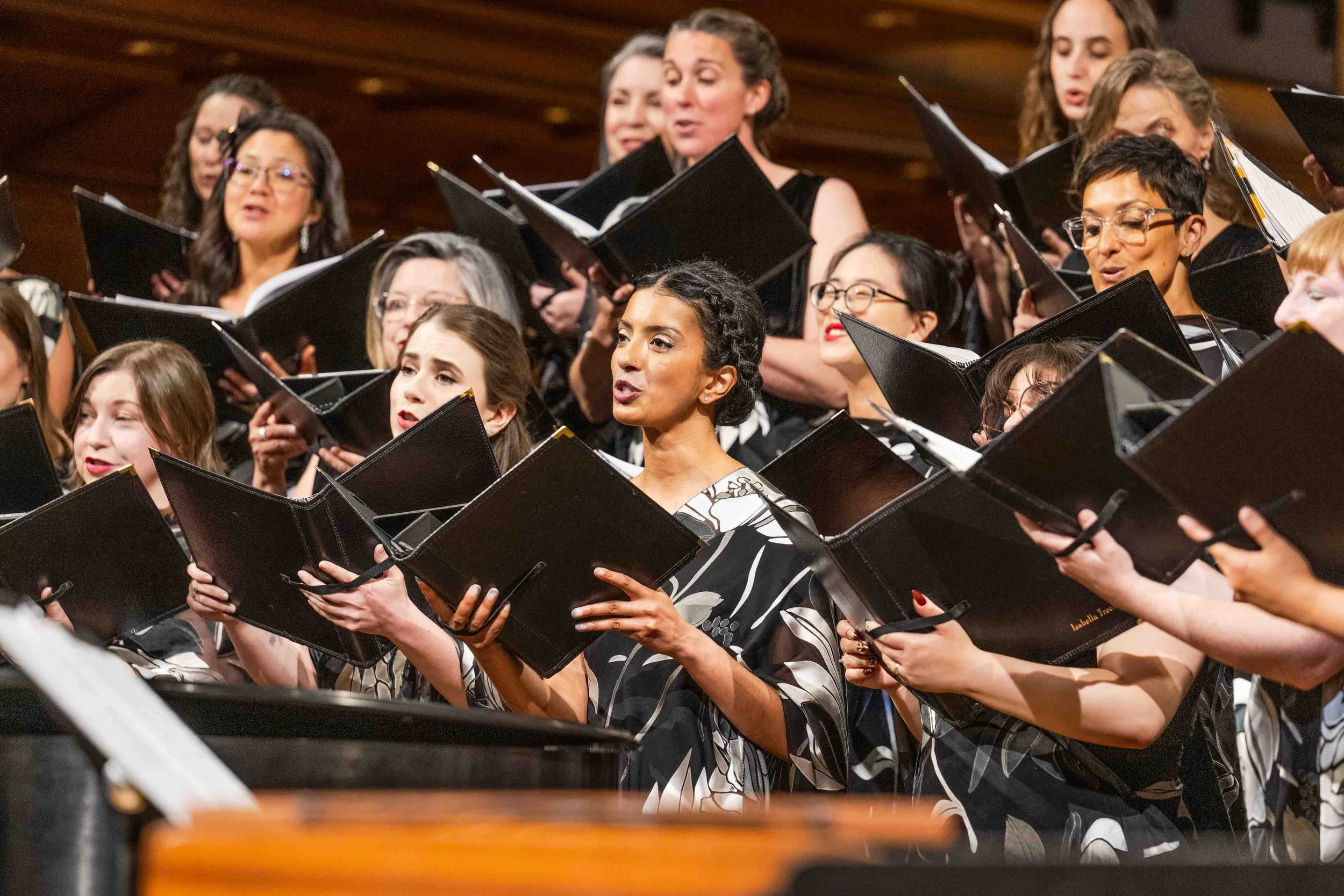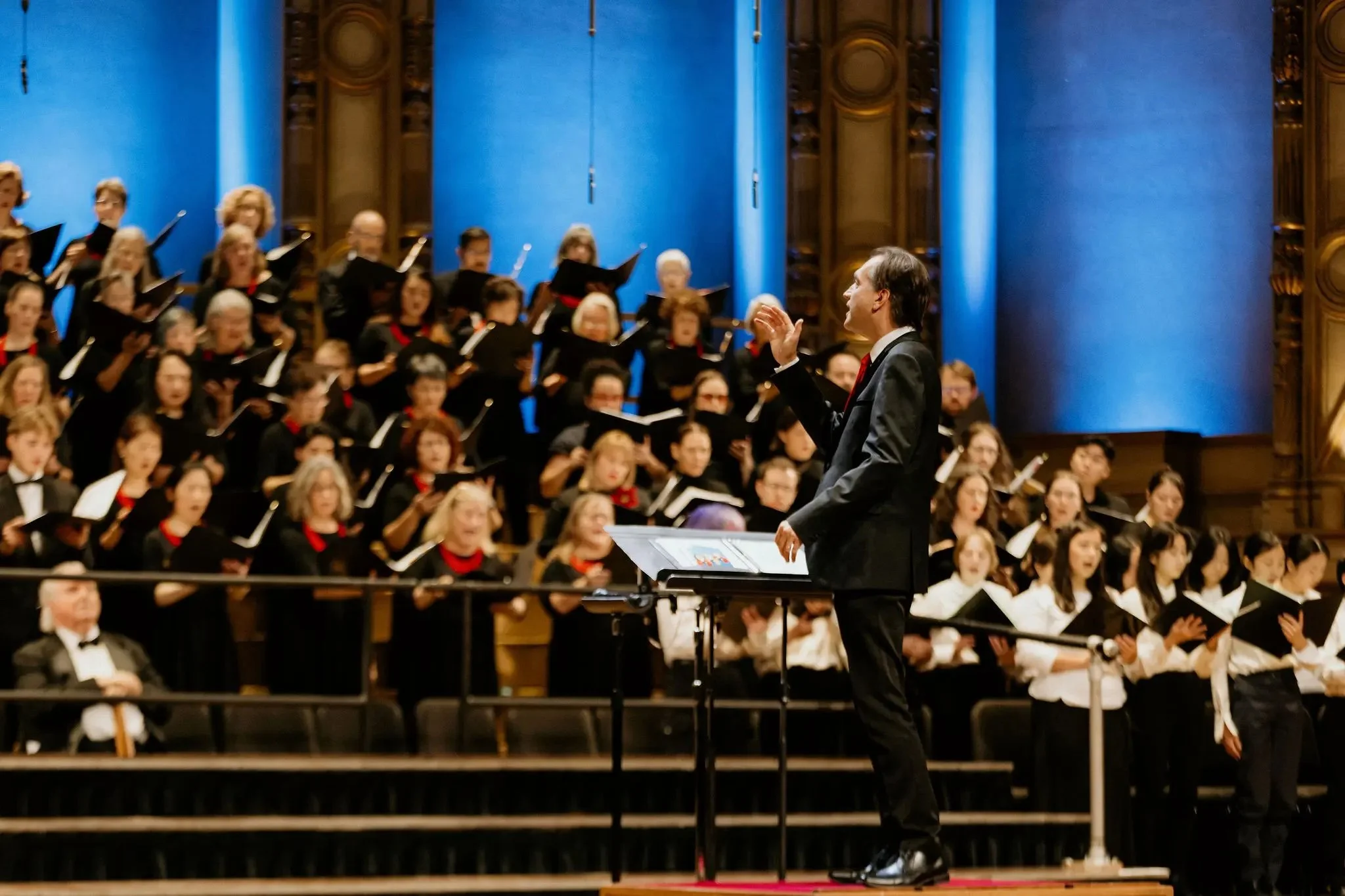Genticorum's traditional Quebec songs go back centuries, at Festival du Bois
Songs of alouettes, rossignols, and more in a rousing blend of fiddle, guitar, accordion, flute, and lusty singing,
Genticorum. Photo by Louise Bichan
Festival du Bois presents Genticorum at Coquitlam’s Mackin Park on March 25 and 26
YOU DON’T HAVE TO speak French to enjoy Genticorum’s music: a rousing blend of fiddle, guitar, accordion, and flute capped off with lusty singing, this Quebec trio’s sound transcends linguistic and cultural boundaries. But even if you have only a smattering of joual, you’ll be able to get a sense of what Pascal Gemme, Yann Falquet, and Nicholas Williams are singing about. Key words jump out: mouton, bergère, gateau. (That’s sheep, shepherdess, and cake, for the truly linguistically challenged.) Along with song titles that explicitly reference sites in the Quebec countryside, such as “Old Yamaska”, the overall effect is one of gentle rusticity, although with flashes of 21st-century feeling.
In keeping with that spirit, a lot of birds are also referenced on the group’s soon-to-be-released Au cœur de l'aube, its seventh full-length. An alouette sings from a ship’s rigging in “Dans les haubans”, for instance, while the rossignol’s legendarily dulcet tones can be heard elsewhere.
“In French song, as well as in English traditional song, birds are very symbolic,” notes Genticorum’s sole Anglophone member, flute and accordion player Williams, in a telephone interview from his Waterville, Quebec home. “The rossignol is the messenger of love, and the alouette has another role to play. It’s maybe more of an observer; it maybe creates a bird’s eye view and is the messenger, spreading the news and gossip.”
In “Dans les haubans”, he continues, the story is told from the point of view of an alouette resting in the rigging of a tall ship.
“The alouette is telling the story of a young woman who’s being kind of courted by a young man. She says ‘No, you’re not rich enough to interest me.’ And he says ‘Ah, you don’t know, but actually have three ships that are laden with gold and silver.’ He’s been kind of leading a hidden life as a sailor; he might be a prince in disguise. It’s kind of telling a story of this feisty interaction or romance that’s happening on a ship, but from the perspective of a bird flying around.”
“You can imagine back in the days before cellphones and the internet and flight, it must have seemed to incredible,” he adds. “The idea that these birds could just travel all over the place and do these things that you couldn’t dream of doing yourself… It’s like they were the fibre-optic high-speed internet of the time.”
Birds also play a part in Au cœur de l'aube’s title. “It’s a bit of a play on words,” Williams explains. “Chœur could be like a choir, but it also means ‘the heart’. A direct translation would be ‘At the Heart of Dawn’, but it could also be interpreted as ‘The Dawn Chorus.’” It’s a playful reference to early-morning birdsong, especially in spring, but it’s also a nod towards the fact that Gernticorum’s musical life is blooming once more, following two years of pandemic-induced contraction.
Let’s go back to those birds, though. There’s another clue embedded in their presence: neither alouettes (skylarks) nor rossignols (nightingales) are native to Quebec. They’re Old World birds, and a signal that Genticorum’s songs have their roots in what 17th- and 18th-century colonists would have been singing on board boats like the one in “Dans les haubans”.
“All of the songs that are on the album are traditional, and when we talk about traditional songs in Quebec, almost all of them go back to France,” Williams confirms. “There are some variants of those songs that exist in Bretagne or Normandie, and I think what’s maybe particular about us and the stage that we’re at is that all of us feel really comfortable with adapting and arranging these things—saying ‘Ah, you know that verse, it doesn’t feel authentic for us to sing. Let’s change it.’ So these are traditional songs that we found either in collections or on archival recordings, but they have been adapted to some extent by Yann, Pascal, or myself. The lyrical content is a mix of traditional and our own input, but we try to keep the essence of the song.”
Williams points out that fiddler Gemme has a degree in composition, guitarist Falquet has one in jazz performance, and his own musical training involved studying ethnomusicology and North Indian flute at York University.
“We’re never shy to admit that we didn’t grow up in a trad-music bubble,” he says. “We’ve all listened to Genesis or whatever, Queen… Pascal was really into heavy metal music! And there’s no way of keeping those influences out. They’re part of who we are as musicians.
“Any musical tradition is strongest when it’s adapting and morphing and taking in new ideas,” he adds. “As soon as a musical tradition is fixed, then it dies. It kind of needs to be always adapting.”
With Genticorum and other Festival du Bois headliners such as Les Grands Hurleurs or Devon et Louis Léger flourishing at home, there’s no chance of that happening in la belle province—or even in our own Francophone outpost, Maillardville.













